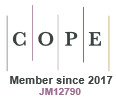It’s the blues, Jim, but not as we know it: a response to FitzGibbon et al. (2017)
Stephen PhillipsBiolink Ecological Consultants, PO Box 3196, Uki, NSW 2484, Australia. Email: steve@biolink.com.au
Australian Mammalogy 39(1) 113-114 https://doi.org/10.1071/AM17007
Submitted: 8 February 2017 Accepted: 26 February 2017 Published: 14 March 2017
Abstract
A cautious approach to managing the impacts of disturbance on free-ranging koala (Phascolactos cinereus) populations is fundamental to effective management of this iconic species. The critique by FitzGibbon et al. (2017) of a pioneering study by Phillips (2016) on the impacts of noise on koalas argued that a departure from aspects of the methods, a disregard for disease issues, other koala mortality data and an onerous approach to mitigation of potential impact detracted from the merit of the work. In response and while acknowledging some departures in evaluation criteria, the primary outcomes arising from the study remain unchanged, concerns about unreported koala mortalities are premature, while mitigation measures proposed by Phillips (2016) have been misinterpreted. Unravelling the implications of anthropogenic disturbance on terrestrial wildlife communities is a rapidly expanding field of ecological study. The work in question provides novel descriptions of aversive behaviour by koalas, each of which remains testable in the context of disturbance ecology, thus laying the foundations for further research to be undertaken.
References
FitzGibbon, S. I., and Ellis, W. E. (2012). Bluesfest koala monitoring study: final report to Bluesfest Pty. Ltd. University of Queensland Koala Ecology Group.FitzGibbon, S., Gillett, A., Barth, B., and Ellis, W. (2013). Bluesfest Koala Monitoring Program 2013 report. University of Queensland Koala Ecology Group.
FitzGibbon, S., Gillette, A., Bart, B., and Ellis, W. (2014). Bluesfest Koala Monitoring Program 2014 Report. University of Queensland Koala Ecology Group.
FitzGibbon, S. I., Gillett, A. K., Barth, B. J., Taylor, B., and Ellis, W. A. (2017). Do koalas really get the Blues? Critique of ‘Aversive behaviour by koalas (Phascolarctos cinereus) during the course of a music festival in northern New South Wales, Australia’. Australian Mammalogy 39, 108–112.
| Do koalas really get the Blues? Critique of ‘Aversive behaviour by koalas (Phascolarctos cinereus) during the course of a music festival in northern New South Wales, Australia’.Crossref | GoogleScholarGoogle Scholar |
Hopkins, M., and Phillips, S. (2010). Koala habitat assessment and monitoring program – Bluesfest 2010. Final Report to Bluesfest Pty. Ltd.
Phillips, S. (2016). Aversive behaviour by koalas (Phascolarctos cinereus) during the course of a music festival in northern New South Wales, Australia. Australian Mammalogy 38, 158–163.
| Aversive behaviour by koalas (Phascolarctos cinereus) during the course of a music festival in northern New South Wales, Australia.Crossref | GoogleScholarGoogle Scholar |
Phillips, S. (). Differing mortality rates in two concurrently radio-tracked populations of koala (Phascolarctos cinereus). Australian Mammalogy , .
Reeder, D. M., and Kramer, K. M. (2005). Stress in free-ranging mammals: integrating physiology, ecology and natural history. Journal of Mammalogy 86, 225–235.
| Stress in free-ranging mammals: integrating physiology, ecology and natural history.Crossref | GoogleScholarGoogle Scholar |


